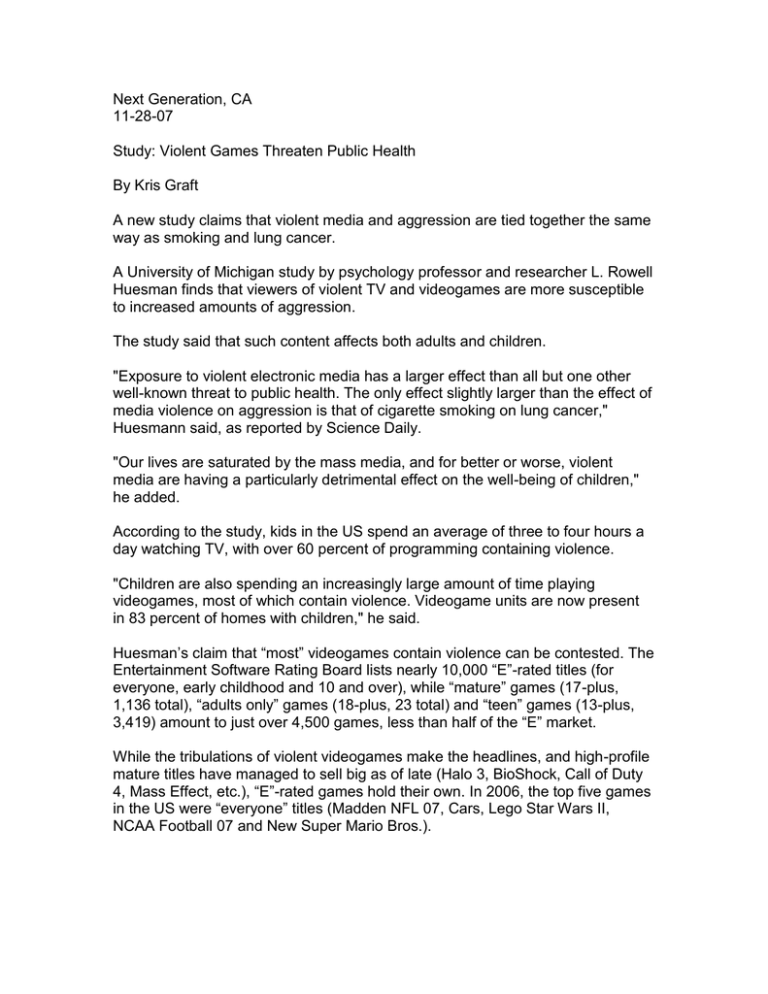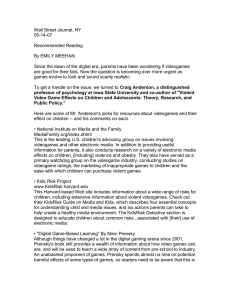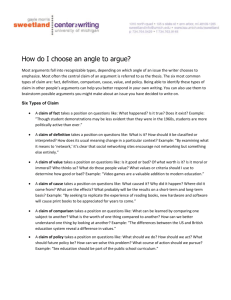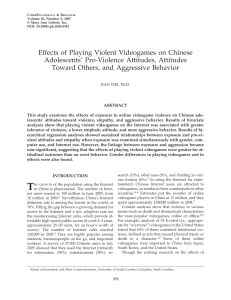Next Generation, CA 11-28-07 Study: Violent Games Threaten Public Health
advertisement

Next Generation, CA 11-28-07 Study: Violent Games Threaten Public Health By Kris Graft A new study claims that violent media and aggression are tied together the same way as smoking and lung cancer. A University of Michigan study by psychology professor and researcher L. Rowell Huesman finds that viewers of violent TV and videogames are more susceptible to increased amounts of aggression. The study said that such content affects both adults and children. "Exposure to violent electronic media has a larger effect than all but one other well-known threat to public health. The only effect slightly larger than the effect of media violence on aggression is that of cigarette smoking on lung cancer," Huesmann said, as reported by Science Daily. "Our lives are saturated by the mass media, and for better or worse, violent media are having a particularly detrimental effect on the well-being of children," he added. According to the study, kids in the US spend an average of three to four hours a day watching TV, with over 60 percent of programming containing violence. "Children are also spending an increasingly large amount of time playing videogames, most of which contain violence. Videogame units are now present in 83 percent of homes with children," he said. Huesman’s claim that “most” videogames contain violence can be contested. The Entertainment Software Rating Board lists nearly 10,000 “E”-rated titles (for everyone, early childhood and 10 and over), while “mature” games (17-plus, 1,136 total), “adults only” games (18-plus, 23 total) and “teen” games (13-plus, 3,419) amount to just over 4,500 games, less than half of the “E” market. While the tribulations of violent videogames make the headlines, and high-profile mature titles have managed to sell big as of late (Halo 3, BioShock, Call of Duty 4, Mass Effect, etc.), “E”-rated games hold their own. In 2006, the top five games in the US were “everyone” titles (Madden NFL 07, Cars, Lego Star Wars II, NCAA Football 07 and New Super Mario Bros.). Huesman acknowledged that violent games and other media won’t necessarily increase aggression in all people. But he said children’s exposure to virtual violence in particular should be monitored. "As with many other public health threats, not every child who is exposed to this threat will acquire the affliction of violent behavior. But that does not diminish the need to address the threat --- as a society and as parents by trying to control children's exposure to violent media to the extent that we can." The study follows a recent survey conducted by Iowa State University assistant professor Douglas Gentile, who's also a researcher for National Institute on Media and the Family. That study surveyed youths’ reaction to violent games and also found an increase in aggression.






